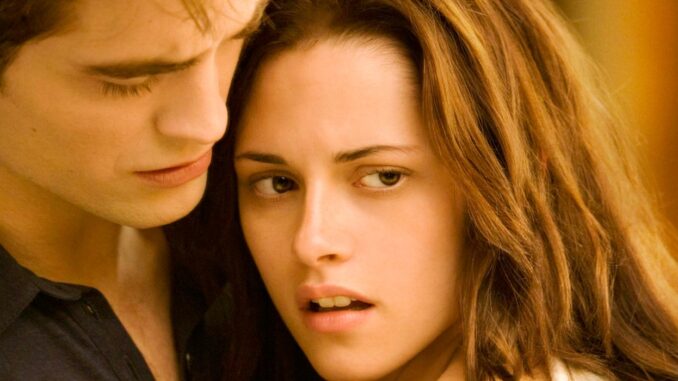
From Gilded Cage to Desert Prince: Robert Pattinson's Odyssey of Reinvention
The name Robert Pattinson once conjured images of a particular sartorial shimmer, a brooding intensity under a pallid glow, and the fervent adoration of millions. For years, he was Edward Cullen, the cinematic embodiment of a cultural phenomenon, a role that brought him stratospheric fame but also encased him in a gilded cage of pop culture expectation. Yet, in the decade following Twilight, Pattinson has orchestrated one of the most compelling and successful career reinventions in modern Hollywood, meticulously dismantling his teen idol persona to emerge as a formidable, unpredictable, and deeply respected actor. His journey, from the dark independent corners to the sprawling, intelligent blockbusters of Mickey 17 and a potential Dune 3, passing through the intimate depths of projects like Die, My Love, is a masterclass in artistic intentionality.
The immediate aftermath of Twilight was not a leap into more franchise fare, but a deliberate plunge into the cinematic unknown. Pattinson actively sought out roles that were diametrically opposed to the romantic hero he had played. He worked with auteurs like David Cronenberg (Cosmopolis, Maps to the Stars), pushing himself into uncomfortable, often grotesque, and intellectually challenging spaces. He embraced the grime and grit of The Rover, the raw desperation of Good Time, and the mind-bending surrealism of The Lighthouse. In these films, he wasn't merely shedding a skin; he was flaying it, exposing a raw nerve and a willingness to disappear completely into unlikable, often disturbing, characters. This period was his artistic crucible, where he honed a remarkable chameleon-like ability, transforming his physicality, his voice, and his very presence to serve the narrative, often with a gnawing intensity that belied his previous fame. He wasn't just proving he could act; he was proving he had to.
This era of calculated risk-taking culminated in a strategic re-entry into the mainstream, but entirely on his own terms. His casting as Bruce Wayne in Matt Reeves' The Batman was met with initial skepticism, yet Pattinson delivered a nuanced, gritty, and deeply human portrayal of the Caped Crusader, one steeped in the very angst and internal torment he’d explored in his indie phase. This wasn't the chiseled, heroic Batman; it was a broken, obsessive detective, a performance that resonated deeply because Pattinson brought the very specific kind of brooding intensity he’d cultivated in the shadows. He proved he could inhabit a blockbuster icon without sacrificing his artistic integrity, seamlessly bridging the gap between arthouse and arena.
The upcoming Mickey 17, directed by the visionary Bong Joon-ho, is a testament to this elevated status. To be chosen by a filmmaker of Bong's calibre for a high-concept sci-fi project signifies Pattinson's arrival as a serious actor, a compelling lead capable of anchoring complex narratives with a distinct authorial voice. It’s not just another big movie; it’s an intelligent big movie, a collaboration that speaks volumes about his artistic alignment. Here, he is no longer seeking to escape a past image, but to explore the frontiers of storytelling with one of cinema's most revered minds, demonstrating his commitment to challenging material regardless of budget.
And then there are the whispers, the archetypes, the potential for projects like Die, My Love. Whether a literal film title or a placeholder for the kind of deeply personal, perhaps unsettling, character studies he continues to gravitate towards, it represents the enduring north star of his career: a profound interest in the human condition, stripped bare. Even with his elevated profile, Pattinson consistently seeks out roles that demand vulnerability, psychological depth, and often, a willingness to be unglamorous. This commitment to the craft, to the internal journey of a character, ensures that his work, regardless of its scale, remains imbued with a raw, compelling honesty. It’s this steadfast dedication that prevents him from being pigeonholed again, guaranteeing that even after commanding the frame in a major franchise, he'll return to the quiet intensity of an independent drama.
The potential for Dune 3 – perhaps a cameo as a new character, or a more significant role in the vast, expanding universe – would mark a complete, triumphant circle. Imagine Pattinson, having proven himself in the grimiest indies, in the dark heart of Gotham, and under the precise lens of Bong Joon-ho, now stepping into the epic, philosophical landscape of Dune. It wouldn't be a star vehicle to re-ignite a fading career; it would be the addition of a commanding presence to an already critically acclaimed saga, an actor whose participation elevates the very intellectual gravitas of the film. He wouldn't be defined by the franchise; the franchise would be enriched by him.
Robert Pattinson's journey from the suffocating glow of Twilight to the vast, arid landscapes of Dune (or its equivalent) is not just a career arc; it's a testament to the power of artistic intentionality. He systematically shed the skin of celebrity, burrowed into the discomfort of challenging roles, and emerged as an actor of profound depth and versatility. His choices, from Mickey 17 to the hypothetical Die, My Love, and the potential grandeur of Dune 3, form a symphony of deliberate moves, each note a declaration of independence and a pursuit of artistic truth. He is no longer Edward Cullen; he is Robert Pattinson, a singular talent who mastered the art of reinvention, proving that true stardom is found not in avoiding shadows, but in learning to dance within them.
